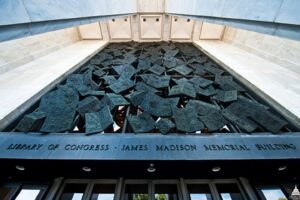 This spring, the Cyberlaw Clinic is returning to the eighth triennial rulemaking proceeding under 17 U.S.C. 1201, which considers exemptions to the anti-circumvention provision of the Digital Millennium Copyright Act (DMCA). Section 1201 of the DMCA outlaws the circumvention of technological protection measures (TPMs) that prevent the unauthorized copying of digital materials. The blanket ban on TPM circumvention, however, applies regardless of whether the underlying use of materials is infringing or fair. Therefore, every three years the Copyright Office holds hearings to determine appropriate exemptions to 1201 restrictions, and make a recommendation to the Librarian of Congress, who ultimately decides which uses are exempted from 1201. This year, the Cyberlaw Clinic, on behalf of the Software Preservation Network and Library Copyright Alliance, seeks to expand the exempted uses to allow eligible memory institutions to access out-of-commerce software and video games remotely for qualifying preservation, research, and teaching purposes.
This spring, the Cyberlaw Clinic is returning to the eighth triennial rulemaking proceeding under 17 U.S.C. 1201, which considers exemptions to the anti-circumvention provision of the Digital Millennium Copyright Act (DMCA). Section 1201 of the DMCA outlaws the circumvention of technological protection measures (TPMs) that prevent the unauthorized copying of digital materials. The blanket ban on TPM circumvention, however, applies regardless of whether the underlying use of materials is infringing or fair. Therefore, every three years the Copyright Office holds hearings to determine appropriate exemptions to 1201 restrictions, and make a recommendation to the Librarian of Congress, who ultimately decides which uses are exempted from 1201. This year, the Cyberlaw Clinic, on behalf of the Software Preservation Network and Library Copyright Alliance, seeks to expand the exempted uses to allow eligible memory institutions to access out-of-commerce software and video games remotely for qualifying preservation, research, and teaching purposes.
Three years ago, the Cyberlaw Clinic, representing the Software Preservation Network, won an exemption allowing libraries, archives, and museums to circumvent TPMs on certain lawfully acquired software for the purposes of preserving software and the materials that depend on it. However, under the existing exemption, the circumvented materials may only be accessed on premises at the museum, library, or archives where they were preserved. This cycle, the Cyberlaw Clinic is seeking to remove the on-premises limitation, in order to facilitate research and learning. The Clinic is seeking this exemption on behalf of the Software Preservation Network and the Library Copyright Alliance.
Oral hearings in connection with the 1201 rulemaking are scheduled to be held on April 19th, at 1 pm Eastern, via Zoom, livestreamed on the Copyright Office’s website. At the Zoom hearing, there will be two panels of testifying witnesses, supporting and opposing, appearing before a panel of Copyright Office representatives. The Clinic has organized a panel of clinic organizing supporting experts, which includes Cyberlaw Clinical Instructor Kendra Albert, Teaching Fellow Mayze Teitler, Student Attorney Maddie Woodall, Dr. Bo Ruberg of the University of California, Irvine, Dr. Henry Lowood of the Stanford University Libraries, and Jonathan Band of the Library Copyright Alliance. Most of the hearing will be spent addressing questions from the Copyright Office representatives.
Proceedings to Date
The upcoming oral hearings follow three rounds of formal comments. In December, the Cyberlaw Clinic filed a long comment on behalf of the Software Preservation Network and Library Copyright Alliance proposing the elimination of the on-site requirement and providing the full legal and evidentiary basis for contemplated uses. The proposed exemption builds upon the exemption passed in 2018 and would extend controlled off-site access to software and video games scholars, who seek to conduct research on preserved digital materials. This past Wednesday, the Clinic filed a reply comment on behalf of SPN and LCA responding to objections raised by industry opponents and refining its proposal.
The Clinic’s reply comment responded to arguments and objections raised by two opposition comments from industry coalition, Joint Creators and Copyright Owners (representing the Motion Picture Association, Alliance for Recorded Music, and the Entertainment Software Association) and the Electronic Software Association. The opposition comment period gave parties who wished to challenge the exemption the chance to submit arguments following the initial comment submitted in December. No party representing affected industry challenged the proposed exemption for Class 14(a), which seeks to allow off-site access to non-video game software. This heartening result speaks to the widespread support for facilitating scholarly research on these pieces of technology, preventing the loss of born digital materials.
Video game industry groups did, however, challenge off-site access facilitated by a library or archival institution to preserved out-of-commerce video game materials. In their reply, SPN and LCA emphasized the importance of preservation efforts to save historically valuable but non-commercially viable games. For instance, scholarly significant titles that have vanished due to the legal and logistical difficulty of preservation, like the lost cabinet game Heavyweight Champ, which portrayed the first Black video game character and lost-but-recovered game Caper in the Castro, widely regarded as the first LGBTQ+ game (or Gayme, as Caper self-styles). Industry-led preservation and re-release tactics do not tend to include indie and unpopular games, which may nevertheless have major historical importance. In drafting the comments and finding relevant use cases, the clinic also benefitted immensely from interviews and conversations with games scholars, including Dr. Adrienne Shaw, Dr. Bo Ruberg, and Mr. Phil Salvador. The team is deeply grateful for their thoughtful assistance.
Next Steps for the Cyberlaw Clinic
The upcoming oral hearing is the final formal stage in the exemption proceedings and the only opportunity for opponents to respond to the Clinic’s final reply comment. After the hearings, the Register will then release a recommendation that will inform the Librarian’s Final Decision, both of which are anticipated to be published in the fall of this year.
Public domain image of James Madison Memorial Building, United States Library of Congress, available at https://www.aoc.gov/explore-capitol-campus/buildings-grounds/library-of-congress/james-madison-building.
